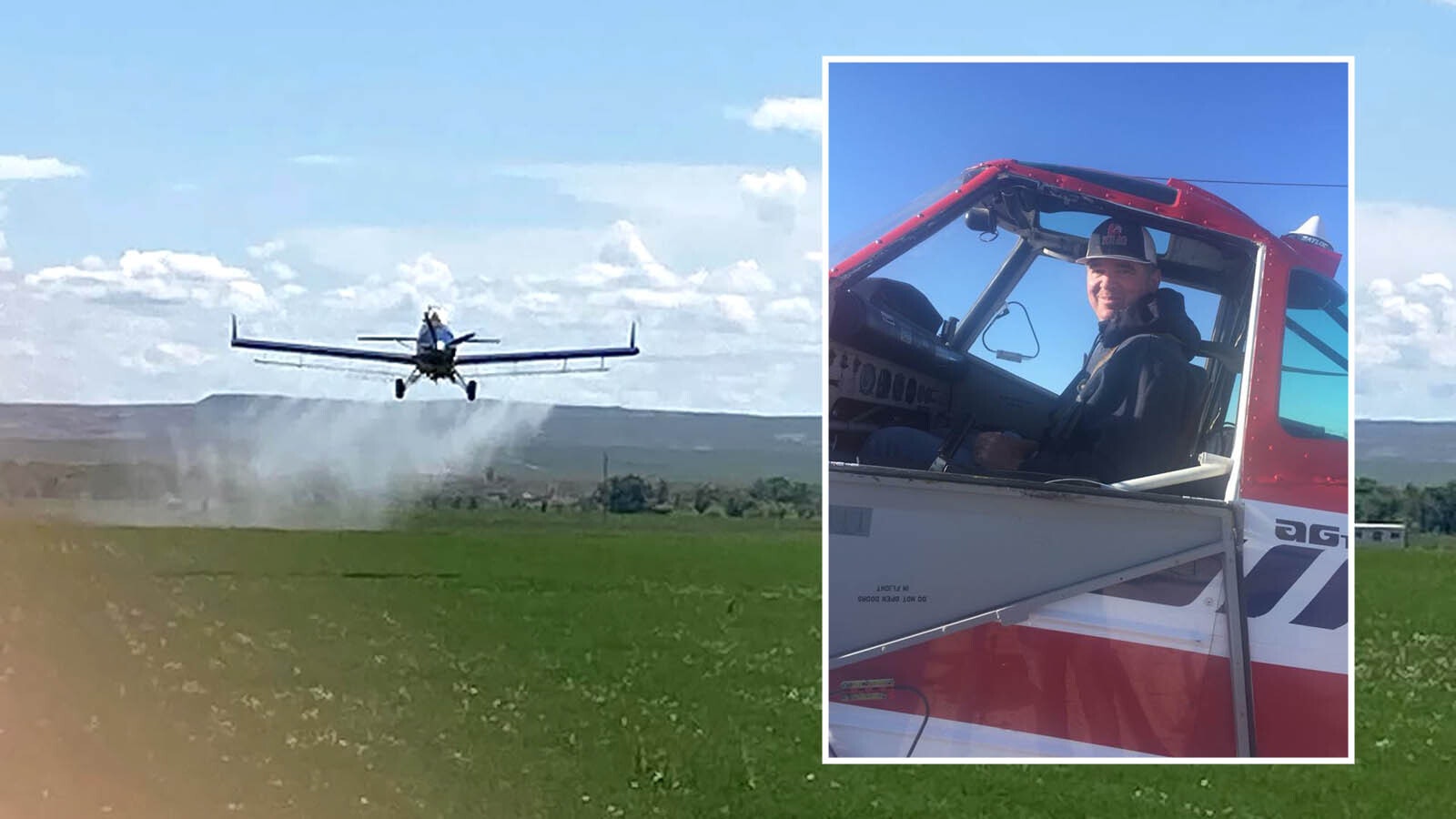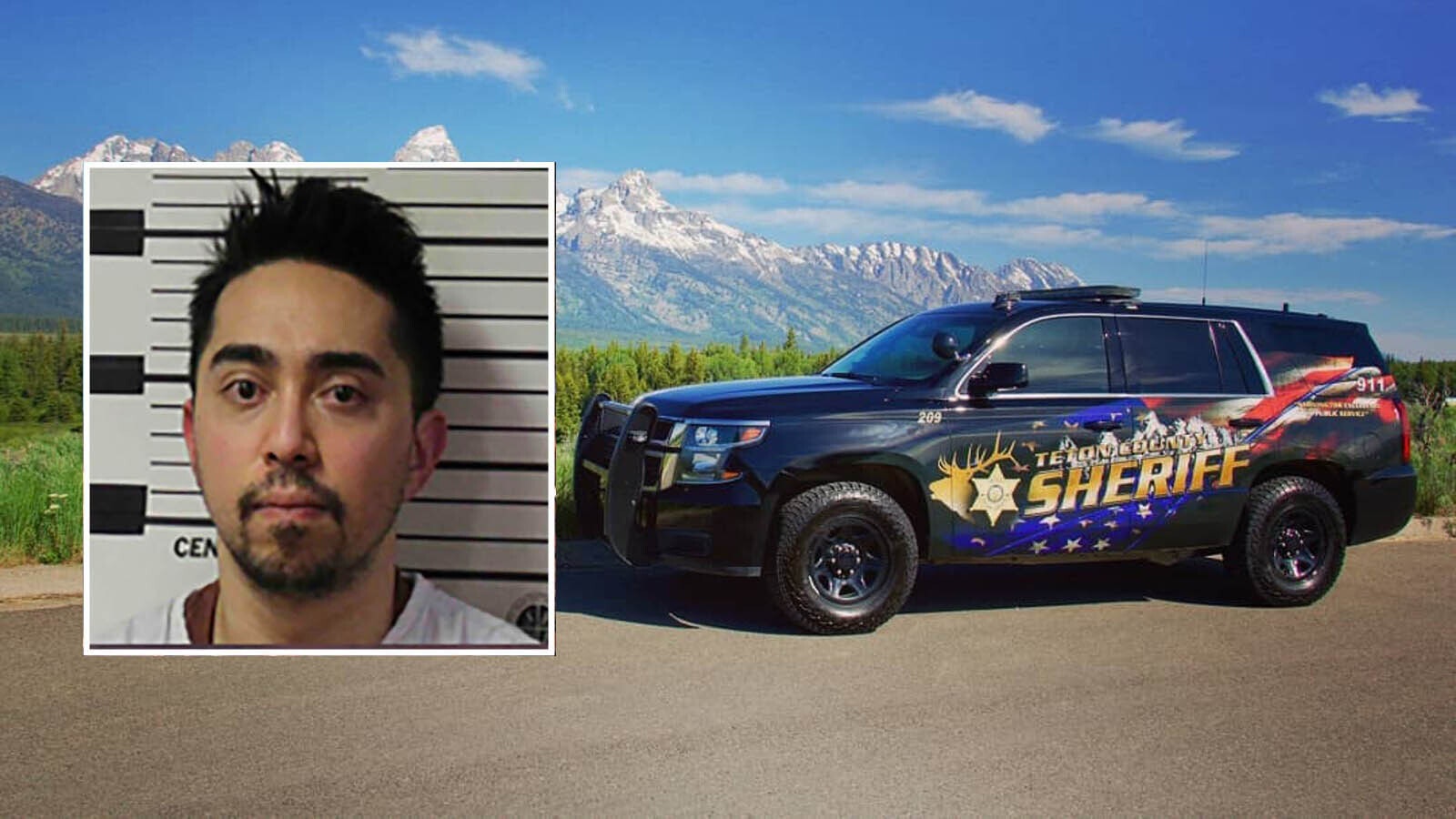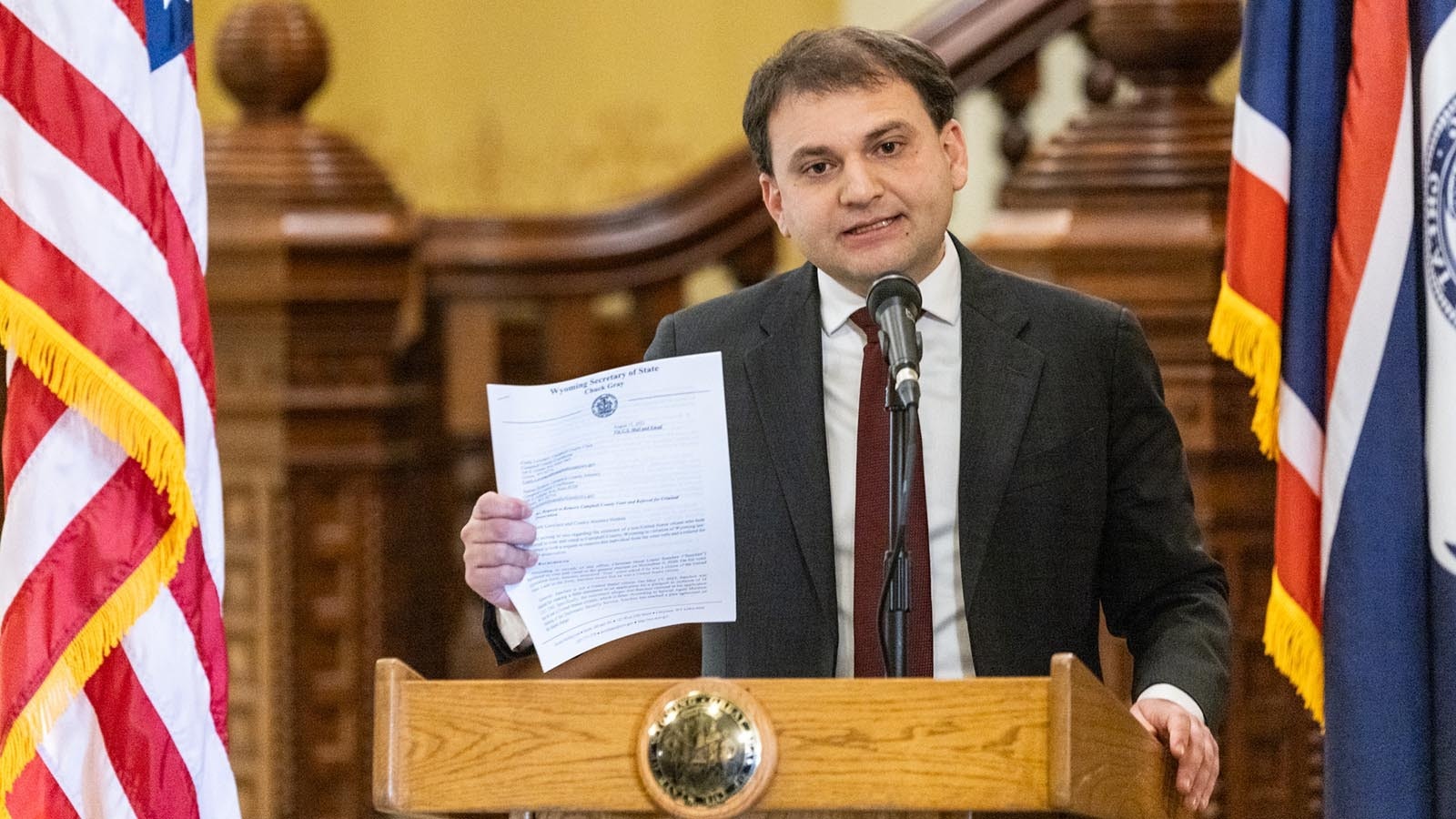The Wyoming Supreme Court has upheld a man’s felony methamphetamine conviction, but hinted that the state Legislature should take a closer look at the minor traffic law police used to arrest the man in the first place.
Jason Earl Anderson appealed his meth-possession conviction to the Wyoming Supreme Court in January, arguing that a Casper Police Department officer used a flimsy show of probable cause to arrest him.
Signal For 100 Feet, Not 20
Anderson was driving in a rental car on C Street in Casper on July 30, 2021. He was behind another stopped vehicle at the intersection and flicked on his left turn signal for about 13 seconds — about 20 feet — before making his own left turn onto McKinley.
Casper Police Department Officer Ben Baedke pulled Anderson over for failing to signal a full 100 feet before turning as the law requires, according to a Tuesday opinion by the Wyoming Supreme Court.
Baedke told Anderson he stopped him because of the turn signal violation. The officer then asked Anderson, who showed a Wyoming driver’s license, why he was driving a rental vehicle.
Anderson’s court record indicates he had problems with his own car.
Two more officers arrived about five minutes into the traffic stop. Baedke asked one of the officers to craft a written warning for Anderson and asked another to escort Anderson from his vehicle so that he, Baedke, could run his canine Banjo around the vehicle.
Banjo didn’t alert for drugs. But Officer Michael Paschke smelled marijuana, the order says, and asked Anderson if he had any marijuana on himself or in the vehicle.
Anderson reached into his left pants pocket, withdrew a glass marijuana pipe and handed it to Paschke. He then told Paschke there was more marijuana in the vehicle.
Baedke determined from this that he had probable cause to search the vehicle. In it, Baedke found another marijuana pipe with reside, a glass jar of marijuana and a capped piece of metal pipe containing 25 grams of methamphetamine, says the order.
Guilty, Then
Prosecutors charged Anderson with one count of felony meth possession. He argued in court that Baedke’s excuse for pulling him over wasn’t enough probable cause under the Fourth Amendment to the U.S. Constitution.
Natrona County District Court Judge Daniel Forgey rejected this argument.
“There’s no persuasive reason or evidence that Mr. Anderson could not have signaled his intent to turn left onto McKinley Street continuously during not less than the last 100 feet traveled before he turned,” the judge said. “This is not a case in which it was impossible for Mr. Anderson to comply with that particular statute.”
Anderson settled on a plea agreement. He pleaded guilty and the court sentenced him to three years’ probation with between four and six years in prison possible if his probation were revoked.
Don’t Change Your Mind
Anderson appealed to the high court, insisting that Baedke didn’t have reasonable suspicion of a crime.
The statute in question says people turning on a roadway must behave safely and must signal continuously for 100 feet or more before making a turn.
Anderson said the statute is trying to make people behave safely, and that he was behaving safely by signaling when he did.
The state Supreme Court countered in the order by Chief Justice Kate M. Fox, saying the court can’t overlook the second half of the statute and its specification that people should signal for at least 100 feet.
“We are not at liberty to ignore one of the two requirements,” wrote Fox.
The law also makes it illegal to change one’s mind at the last moment in traffic, Fox wrote, acknowledging both Anderson’s argument and issues arising in other courts, with similar laws.
“When a motorist is not familiar with his or her surroundings,” reads a quoted order from the Vermont Supreme Court, “the motorist often must violate the law to determine his or her desired direction. … We therefore urge the Legislature to reexamine the statute and narrow its operation within more reasonable limits.”
‘Sympathetic’
Fox concluded that the Wyoming Supreme Court is sympathetic to Anderson’s arguments in light of the law’s demands. However, “We cannot ignore the statute’s plain language.”
Whether the law itself is wise, wrote Fox, “is for the Legislature to address.”
Clair McFarland can be reached at clair@cowboystatedaily.com.





